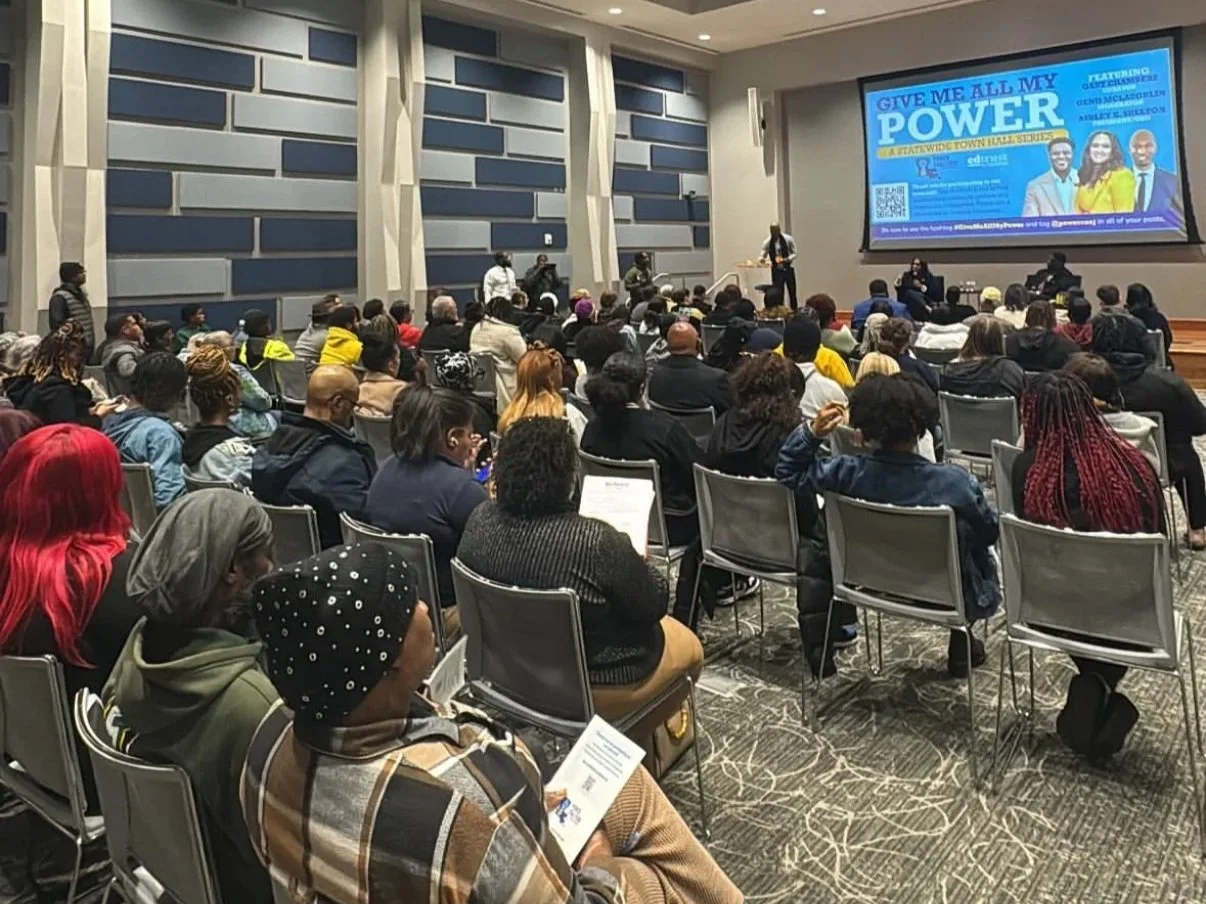Lessons from the South: How Flexible Funding and Coalition-Building Delivered a Big Win for Louisianans
This article was written as part of our 2025 Impact Report.
When Louisiana’s governor introduced a special legislative session on November 6, 2024 — the day after the presidential election — community organizers knew they would need to move quickly.
The session put on the spring ballot a set of sweeping constitutional amendments targeting Louisiana’s economic and court systems. If passed, they would strip resources from communities already struggling to make ends meet, further criminalize young people of color, and make it easier for courts to favor oil and gas polluters.
Those pushing for the amendments were counting on voters to be distracted, exhausted, and disengaged. With no other statewide issues to decide and only a limited number of local races, most voters weren't expected to show up to the polls. But groups committed to equity and justice in Louisiana were ready to prove them wrong.
Years before these amendments appeared on the ballot, those groups had been building something powerful: a multi-issue, statewide coalition that included groups across climate, democracy, housing, faith, education, economic justice, criminal legal reform, and more.
With flexible, multiyear support from Hive Fund and other aligned funders, partners like Electoral Collective, Power Coalition for Equity and Justice, #PutHousingFirst Triad, Alliance for Affordable Energy, and Step Up Louisiana had developed what we call “collaborative infrastructure” — the relationships, systems, and shared strategies needed to move quickly when crises hit.
“Hive Fund's long-term support meant we could hit the ground running as soon as we learned these amendments would be on the ballot,” explained Tamara Agins, executive director of Electoral Collective. “We didn't have to scramble to build our network or find resources — we already had both. In a situation like this, every day matters.”
Drawing on their broad constituencies, these groups mobilized voters across Louisiana’s diverse communities, making clear the importance of showing up for an election on constitutional amendments. They understood the rules for voter engagement on ballot measures like these and were able to carry out this work within 501(c)(3) funding guidelines.
Electoral Collective provided campaign resources including branding, tested and tailored talking points, and social media toolkits, along with hands-on support to help each organization get their message out as powerfully as possible. Power Coalition for Equity and Justice organized town halls across the state, creating space for deeper conversations about what was at stake. Other partners held discussions with teachers associations, churches, and neighborhood groups.
They had different audiences — each with their own views and priorities — but a unified message: vote no on them all. Together, they built a drumbeat that echoed across the state.
“None of us could have done this on our own,” said Ashley Shelton, executive director of Power Coalition for Equity and Justice. “Our strength came from working together.”
On election day, as community organizers awaited the results, they knew they were up against incredible odds. Not only did they need to defeat all four proposed amendments — any one of which would be devastating for their communities — but they had to do it during an election with projected turnout of just 12 percent.
When the votes were counted, even those leading the No to Them All campaign were stunned. Voter turnout surged to over 21 percent — higher than the state's last gubernatorial election. And nearly two-thirds of voters rejected all of the amendments.
"We didn’t just win. We won big. When we saw those results come in, it wasn't just a policy victory," Agins reflected. "It was proof that when you give people the information and tools they need, they'll show up to protect their communities."
When we asked how they did it, our grantee partners were clear that their winning strategy wasn't built overnight — it emerged from years of relationship-building, sustained funding, and collaborative infrastructure that could respond rapidly when needed.
“Our success was possible because funders like Hive Fund believed in what we’ve been building,” said Shelton. “That kind of trust and long-term investment means we can plan ahead for moments like this and act when it matters most.”
Maria Harmon, co-founder and co-director of Step Up Louisiana, agreed: “This victory shows what we can do together when funders invest in people power. With well-resourced coalitions, the odds are more in our favor.”
Now, coalition members are looking forward to 2026 and beyond. They’re focused on sustaining momentum, keeping voters engaged, and deepening civic infrastructure that will outlast any single election.
“The challenges facing our democracy are not new to communities in the South — we’ve been navigating them for decades. This is the time for funders to double down so we can not only win, but show others how they can win, too,” said Shelton.
These Louisiana groups are providing a blueprint for what it looks like to build real people power, even in the most difficult terrain.
As Agins said, “This win expanded people’s hope for what’s possible — in Louisiana and everywhere.”

